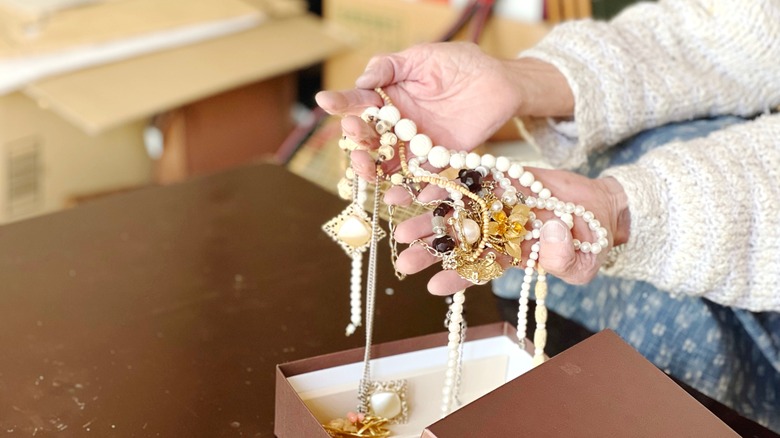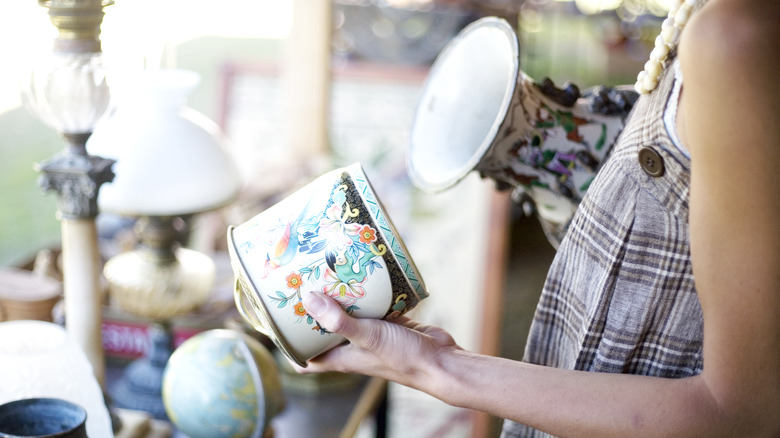Optimistic Ideas To Keep In Mind While Decluttering Family Heirlooms
Decluttering your home is often a very empowering experience. It can feel great to get rid of things you no longer want or need, makes it easier to keep your home clean, and can even improve your mental health. But this doesn't always extend to dealing with family heirlooms like antique furniture, clothes, jewelry, and dishes. Letting go of these items can be very difficult even if you haven't thought about them or used them in years. Of course, you can try Marie Kondo's KonMari organizing method and only keep what brings you joy. You could also set a strict rule for yourself, like determining to get rid of 50% of your attic's contents. While these are great decluttering strategies for your home, they don't always account for the emotional side of things, especially where guilt is concerned. So, here are some additional tips: consider what your family member would want you to do, remember that memories are most important, and ask other family members if they want the items.
While we often think of heirlooms as special, treasured items, that's not always the case. Sometimes people collect things for years on end, not quite sure what to do with them. They may keep the items with the thought that someone might eventually want them. Sound familiar? Try to remember that as you're sorting through boxes of old things. Some items may very well be worth keeping, but others may just be objects that nobody thought to get rid of before you. While this may be easier said than done, putting yourself in this headspace can create some emotional distance between you and the objects.
Getting rid of family heirlooms
There can be a lot of sentimentality attached to items passed down through the generations, and getting rid of them can come with guilt. It's important to have strategies in place to declutter sentimental items without getting bogged down in emotions. Try to picture your loved ones who handed the object down to you. Would they want you to hold onto something that you don't actually want? In most cases, the answer is no. And you certainly wouldn't want your younger family members to be burdened with these same anxieties later on, right? Hopefully these thoughts can help dissipate some of those feelings of guilt.
Also remember that objects don't hold memories — you do! In a piece for Psychology Today, Barry Yourgrau describes his decluttering journey and recounts purposely breaking a cracked bowl he desperately wanted to keep because he just wanted to hold onto the positive memories associated with it. As he tossed the broken bowl down the garbage chute, he realized nothing had happened to his memories or feelings — he just had one less physical symbol of them. If you just can't bear with not having a physical reminder of the possession, consider taking photos of the items and making an album, then discarding the pieces.
Also check in with other family members to see if they have any interest in keeping the items. This can keep the object in the family but get it out of your home. Donating the items can also give you peace of mind that they'll be used by others who will possibly enjoy them more.

